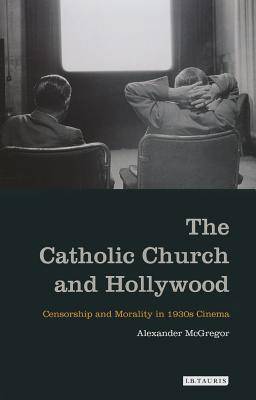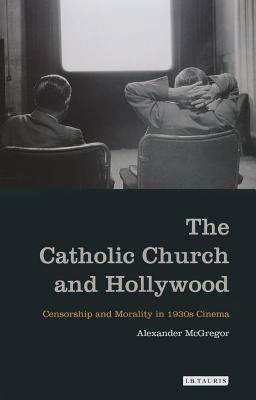
- Retrait gratuit dans votre magasin Club
- 7.000.000 titres dans notre catalogue
- Payer en toute sécurité
- Toujours un magasin près de chez vous
- Retrait gratuit dans votre magasin Club
- 7.000.0000 titres dans notre catalogue
- Payer en toute sécurité
- Toujours un magasin près de chez vous
271,45 €
+ 542 points
Description
During the 1930s, the Catholic Church in the US was engaged in a metaphorical 'war' against the increasingly modern and secular values of the American public. Alexander McGregor offers a detailed account of how the Church, feeling itself to be under siege, used the media- and particulalrly cinema- to reach out to Americans. The 1930s were the 'golden age' for Hollywood, and the Church saw the film industry as an opportunity to engender a pro-Catholic social moral code amongst the US population. McGregor examines the ways in which the American Catholic Church sought to directly influence film production through its involvement with censorship bodies such as the Legion of Decency. Led by two senior bishops, the Legion of Decency's self-appointed task was to police the censorship process of Hollywood films and ensure the moral exactness of the final product. McGregor furthermore discusses wider themes in this struggle for influence over the public sphere, such as the representations of sex and sexuality in the media, and representations of Americanism and patriotism in popular culture.
He thus highlights how the American Catholic Church represented itself and its values, as well as how it perceived its opponents. Finally, 'The Catholic Church and Hollywood' investigates the apparent contradiction at the heart of this attempt to influence the public through the medium of cinema: that a religious group, claiming to be beholden to a higher law and power, would at the same time seek to merge its public identity with secular institutions. McGregor thus scrutinises the claim that in the American polity, state and religion are completely separate. Focusing on the Church's contempt for the public's newfound interest in science, wealth and sexual liberation, Alexander McGregor sheds light on both the social mores of the Catholic Church and wider American society during this crucial period.
He thus highlights how the American Catholic Church represented itself and its values, as well as how it perceived its opponents. Finally, 'The Catholic Church and Hollywood' investigates the apparent contradiction at the heart of this attempt to influence the public through the medium of cinema: that a religious group, claiming to be beholden to a higher law and power, would at the same time seek to merge its public identity with secular institutions. McGregor thus scrutinises the claim that in the American polity, state and religion are completely separate. Focusing on the Church's contempt for the public's newfound interest in science, wealth and sexual liberation, Alexander McGregor sheds light on both the social mores of the Catholic Church and wider American society during this crucial period.
Spécifications
Parties prenantes
- Auteur(s) :
- Editeur:
Contenu
- Nombre de pages :
- 240
- Langue:
- Anglais
- Collection :
Caractéristiques
- EAN:
- 9781848856530
- Date de parution :
- 15-06-13
- Format:
- Livre relié
- Format numérique:
- Genaaid
- Dimensions :
- 140 mm x 216 mm
- Poids :
- 430 g

Les avis
Nous publions uniquement les avis qui respectent les conditions requises. Consultez nos conditions pour les avis.






